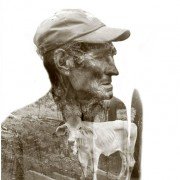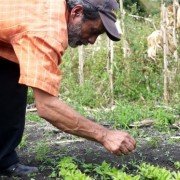At The Heart of Short Term Missions: Reflections From A CEPAD Volunteer
By Olivia Holt, Summer 2014 CEPAD Volunteer Summer
Throughout college I questioned the value of short-term missions. I mostly wondered if the price involved was worth it. Short-term mission trips can be expensive, and they consume a lot of funds. Couldn’t the host ministry better use those funds to advance their work? That money could be feeding hungry tummies, training pastors, or employing locals to build homes for those without shelter. I also wondered how much of a burden it was for the host to take care of a group of foreigners for a week. How are a ministry’s daily activities affected when everything is put on hold because a mission team has arrived? By no means can I address this issue in full, but those questions were on my mind.
I also wondered about the results. I had no doubt that short-term trips were beneficial for the visitors; I myself am a product of short-term missions. I have been changed because of my experiences on mission trips, and my passions have been shaped by what God taught me in those weeks. But, were they really good for the hosts?
A trip to Bluefields, Nicaragua, during my junior year of college eventually won me over to the realization that a short-term trip can be beneficial for everyone involved and a worthwhile financial investment. While my team was in Bluefields, we asked the leader of the ministry, Adrian, about this topic. His simple response meant everything.
“You can send money in an envelope, and it can do lots of things,” he said. “But you can’t send a hug or a smile in an envelope.”
For me, the relationship and the mutual encouragement that comes out of short-term missions is at the heart of these trips.
Last Saturday that took on a whole new meaning for me as I accompanied a delegation from the United States to a community in Jinotega.
For newcomers to CEPAD, a visiting delegation always meets with the community board to hear firsthand about life in rural Nicaragua and their experience with CEPAD. These boards are comprised of community leaders who have committed to working together to improve their community. These are always insightful meetings, but one statement in particular hit me this week. A board member was explaining why her community wished they could have a partnership with a church in the United States. In the midst of her explanation she said:
“When people come here we feel like we exist. We feel like we are part of the world.”
“We feel like we exist.” Wow. Existence. Feeling like you belong. Is there any price too high for making a person feel like they matter to someone in this world? For making a person feel like they are a human who is dearly loved by their Creator and made in his image?
The community leader realized how far off the map her community was. From the international airport, you arrive in her town after five hours weaving through vibrant Nicaraguan mountains, an hour on a brick road and another hour on a dirt road. The delegation spent 4 full days traveling in order to spend 3 days with the community. There are no toilets there. There are scary critters that bite and sting. It’s hot. The closest store or medical clinic is nearly an hour away. Who would want to go to all that trouble to spend time somewhere like that?
Yet for the visiting Californians, any sacrifice involved was entirely worth the opportunity to be with these people. The visitors’ fresh eyes took in the beautiful landscape in awe. Their interest in the community’s progress reminded the community that progress had been made. Their enthusiasm for the ingenious agricultural techniques the farmers used recognized the local peoples’ skills. Their inability to make perfectly round tortillas and their amazement at the local women’s tortilla making talent was both amusing and encouraging. There was laughter. Their actions said, “You are a person who matters. I am here because I want to be with you and learn from you. And not only do I respect you, but I care deeply about you too.”
In return, the visitors came away with their eyes wide open to ways God is at work around the world. They learned about another culture and lifestyle. They experienced a common bond that unites all people. They made new Nicaraguan friends. As they return to their lives in the United States, the hope is that they will think back on their time in Nicaragua and they will be changed.
Sounds like a win-win to me.




![9459673[1]](https://cepadnica.org/wp-content/uploads/2014/04/94596731-180x180.jpg)